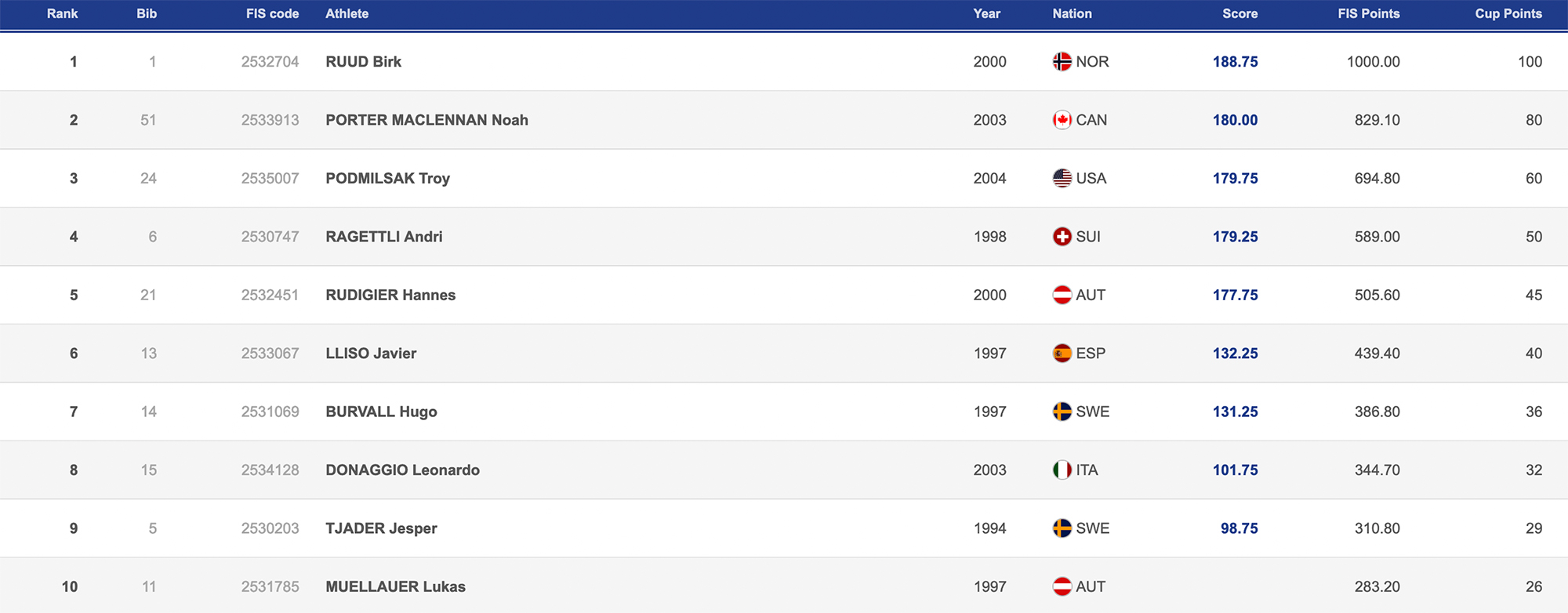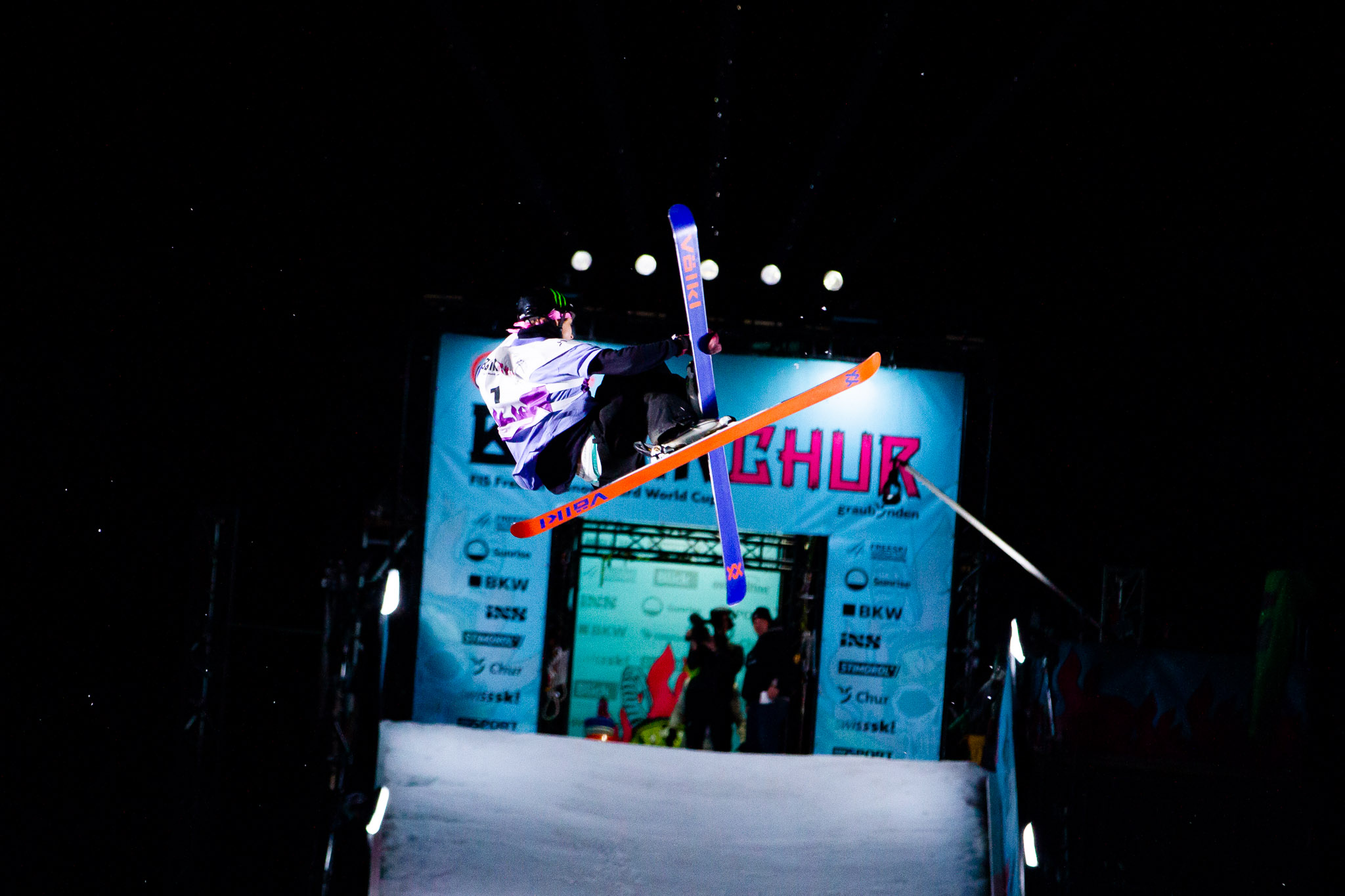
Event News
HighlightFirst contest of the season
Big Air Chur 2022: Rookies, Bringbacks and Mayhem
Mind-bending new tricks, rookie-filled podiums and a massive, roaring crowd of spectators: Big Air Chur 2022 had all the elements of a true skiing spectacle.
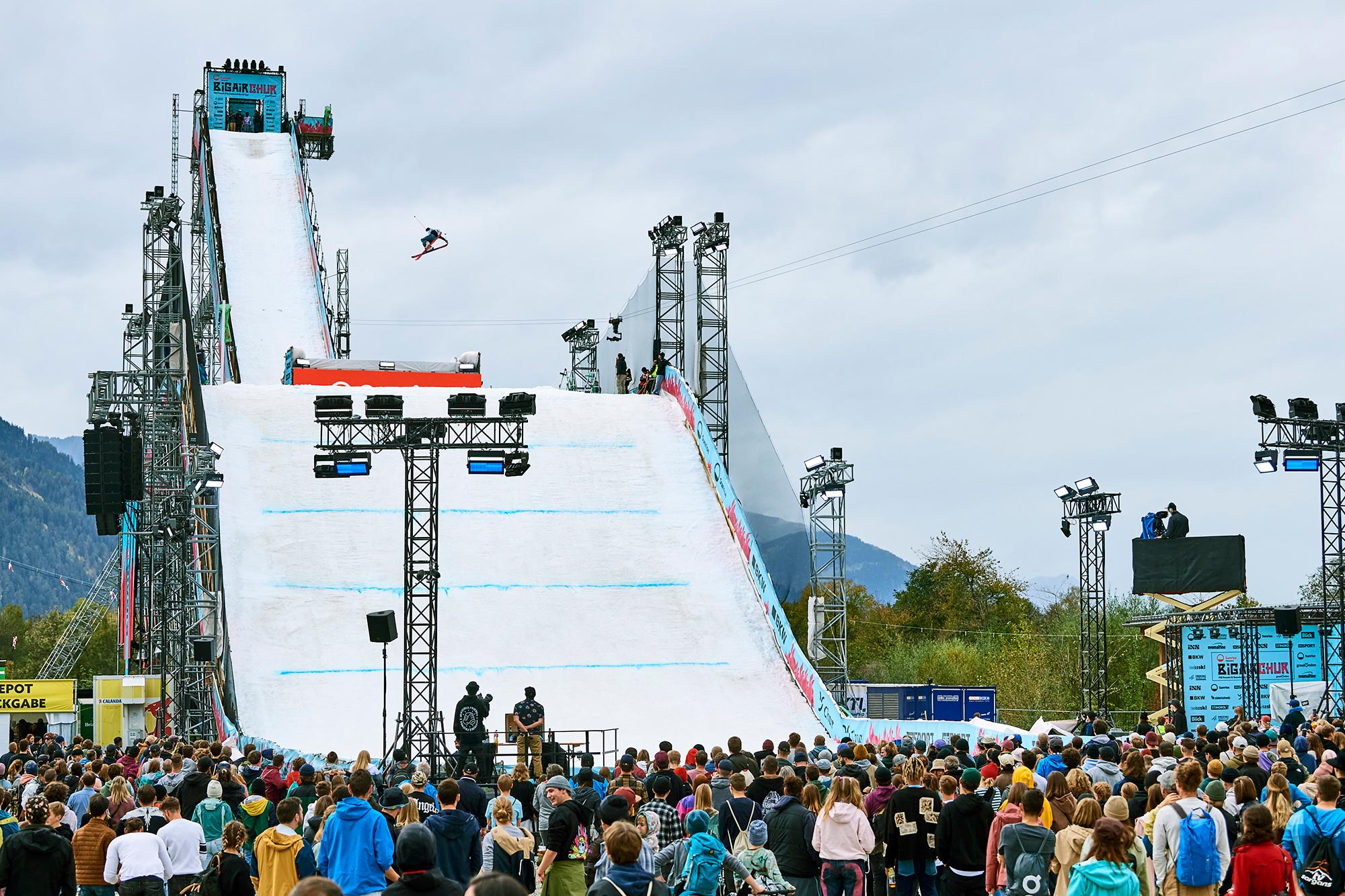
A combination music festival and big-air event, Big Air Chur has become known for drawing the kind of crowds you don´t usually see at a freeski event. Photo: Lämmerhirt
Big Air Chur: Two years in, already legendary
Big Air Chur debuted last year as a hybrid big air contest and music festival, and was an immediate hit. The first major city Big Air in Switzerland since the beloved freestyle.ch ended its two-decade run in Zurich, the event draws crowds in the tens of thousands to Chur, the capital of the canton of Graubünden in eastern Switzerland.
In its second edition, Big Air Chur seems to have topped itself once again. The crowds were just as big if not bigger, with an estimated 12,000 visitors on hand to watch the freeski finals on Friday night. The music line-up featured an impressive mix of national and international stars (headlined by Busta Rhymes), and the big air contest was on a level of its own.
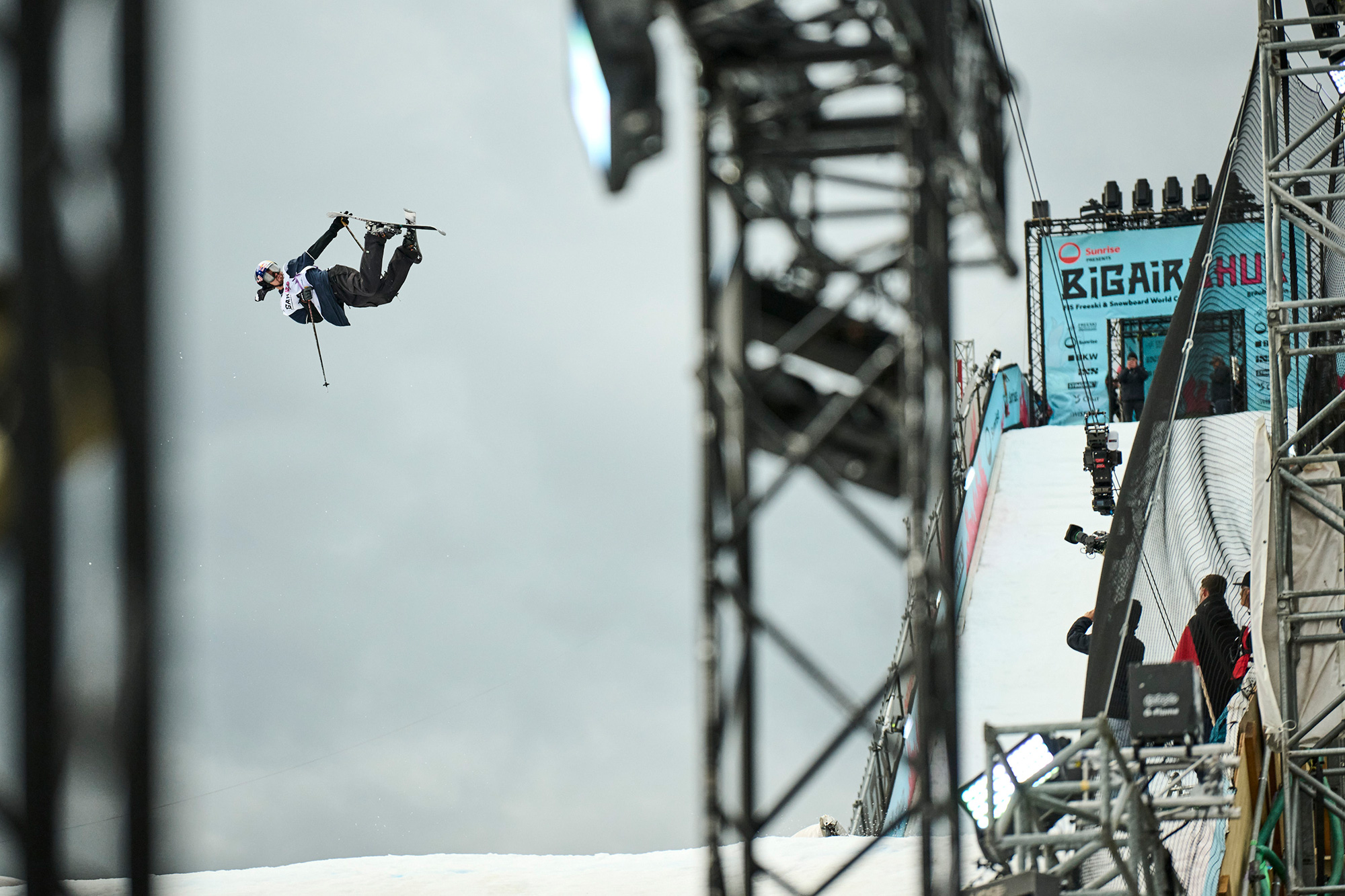
Big Air Chur provides a venue for Swiss Freeski athletes like Fabian Bösch to throw down in front of a hometown crowd. Photo: Stadler
Men’s Qualifications: 1800s and Bring backs
The first contest of a new season is always interesting. It sets the pace for the upcoming winter and shows the new trends in the sport. This year, the trend in men’s big air skiing is this: If you aren’t trying to spin an 1800, then you’re probably trying to do some kind of bringback.
If you haven’t heard the term before, a bringback (sometimes also called a pretzel) involves stalling out a rotation in mid-spin and contorting your body so that at the end of the trick, you’re actually spinning in the opposite direction—usually by "bringing back" a trick by 180 degrees or more. They were pioneered mainly by Alex Hall, whose double cork 900 bringback helped him win the Olympic slopestyle last season.
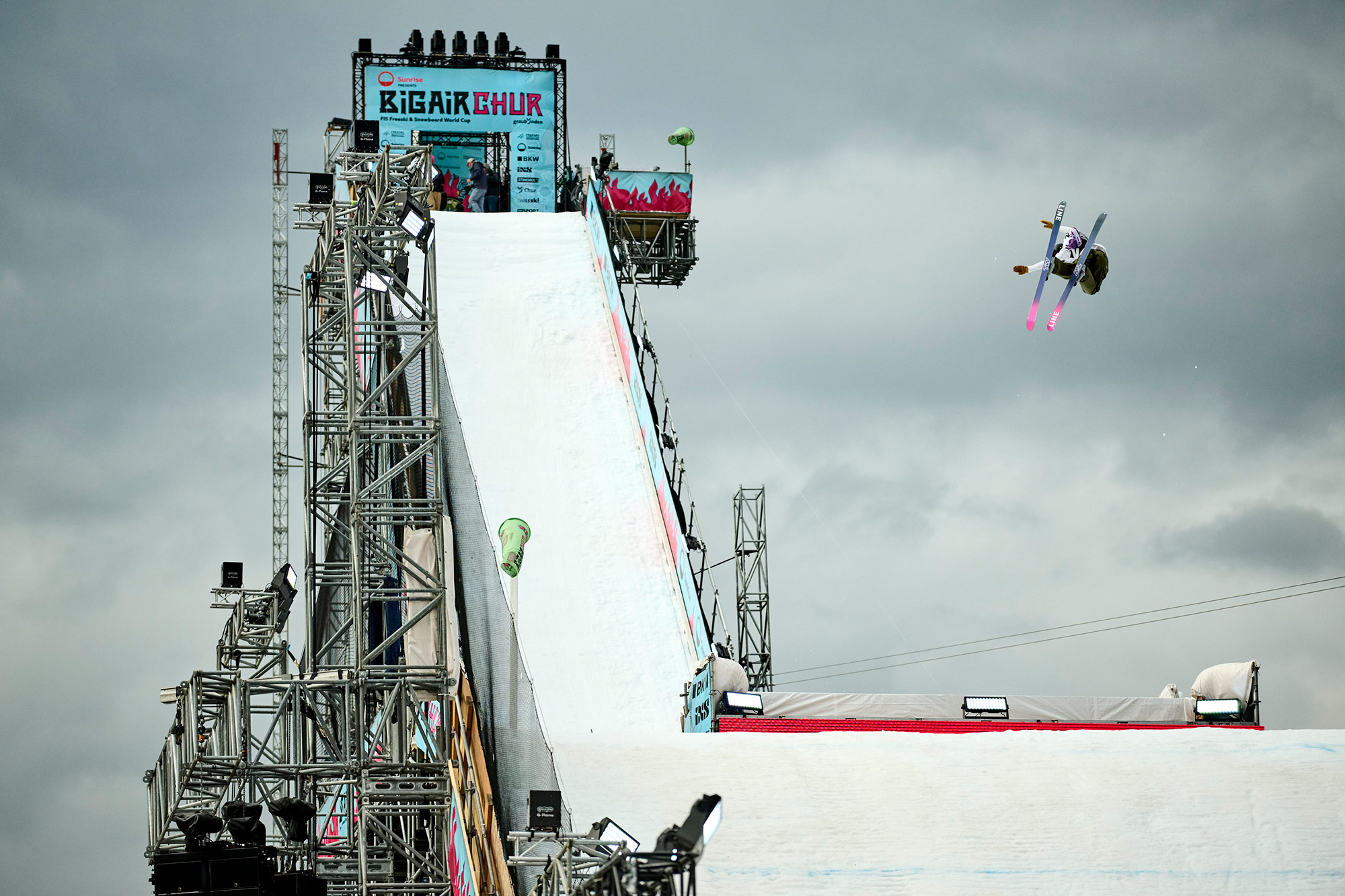
The big challenge with a bringback is making it look good in the air. Though Leo Landroe´s dub 10 bringback was one of the most impressive tricks of the qualis, it also looked like he was going to die most of the time. Photo: Stadler
Bringbacks are definitely in, and the qualifications in Chur showed that they’re here in all different shapes and sizes. Leo Landroe’s was one of the most eye-catching: a leftside double cork 1080 that he somehow stalled out and unwound 360 degrees back to the right. Dylan Deschamps tried a left double 1800 to 180 bringback that didn’t quite work out, while Joel Liimatainen was working on bringing a left triple 1440 back to 1260.
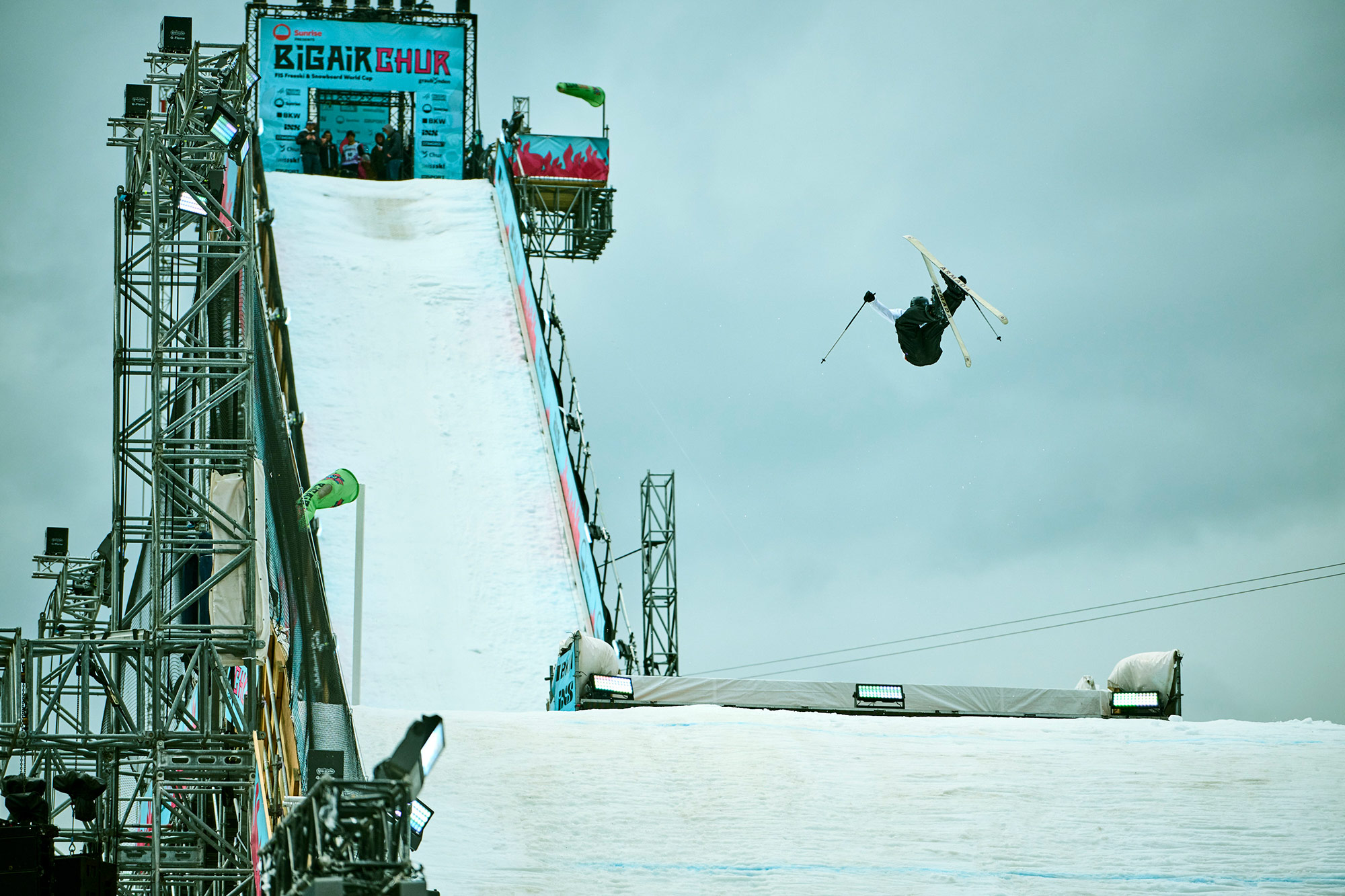
Max Moffatt´s right double 12 bringback wasn´t enough to bring him to the finals. Photo: Stadler
Besides all of the bringbacks, the 1800-degree rotation is now the gold standard of big air, and this contest saw them in spades: switch double cork 18s, forward double cork 18s, switch double misty 18s, forward double bio 18s, and even a triple cork 1800 mute that propelled 18-year-old World Cup rookie Troy Podmilsak into the top qualifying position.
He wasn’t the only newcomer in the finals: His friend Noah Porter Maclennan of Canada also turned heads with a massive forward left double 1800 stale. Meanwhile, Austria’s Hannes Rudigier earned his ticket to the finals with a stomped right triple cork 1620 guitar.
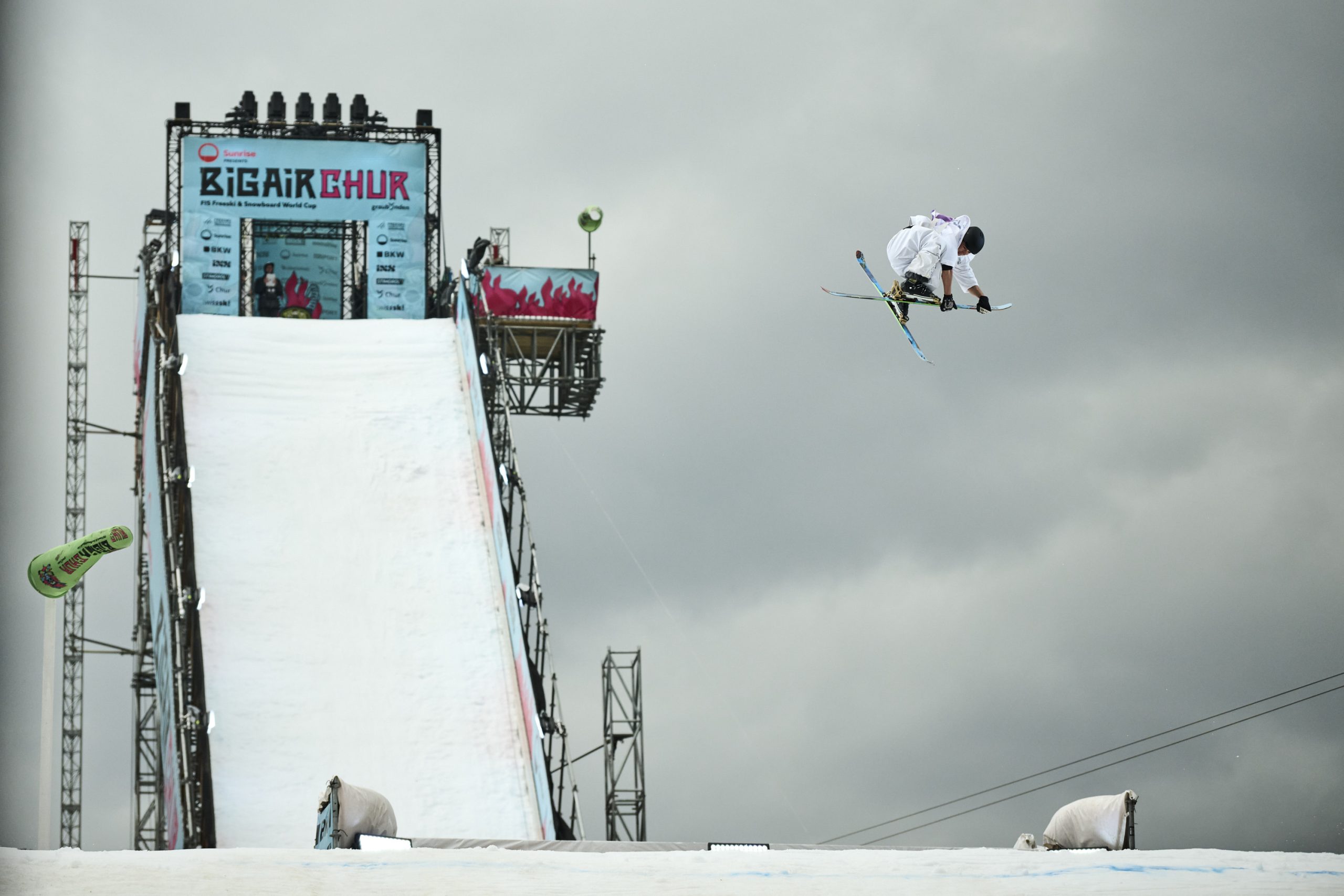
Austrian young gun Hannes Rudigier hammered his way into the finals with a triple cork 1620 guitar. Photo: Stadler
More familiar faces filled the rest of the men’s finals spots. Hometown favorite Andri Ragettli led his heat from the first hit with a switch left double bio 1800 safety, while Birk Ruud’s signature double bio 1800 mute was a no-brainer for the finals. Jesper Tjäder, Javi Lliso, Lukas Müllauer and Leonardo Donaggio all advanced with 1800 variations of their own, while Hugo Burvall clinched his ticket with a clean double cork 1620 tail to tail. The biggest surprise of the men’s qualis was probably Matej Svancer’s failure to qualify. Svancer was unable to land his nose butter double cork 1800, the trick that helped him win here last year.
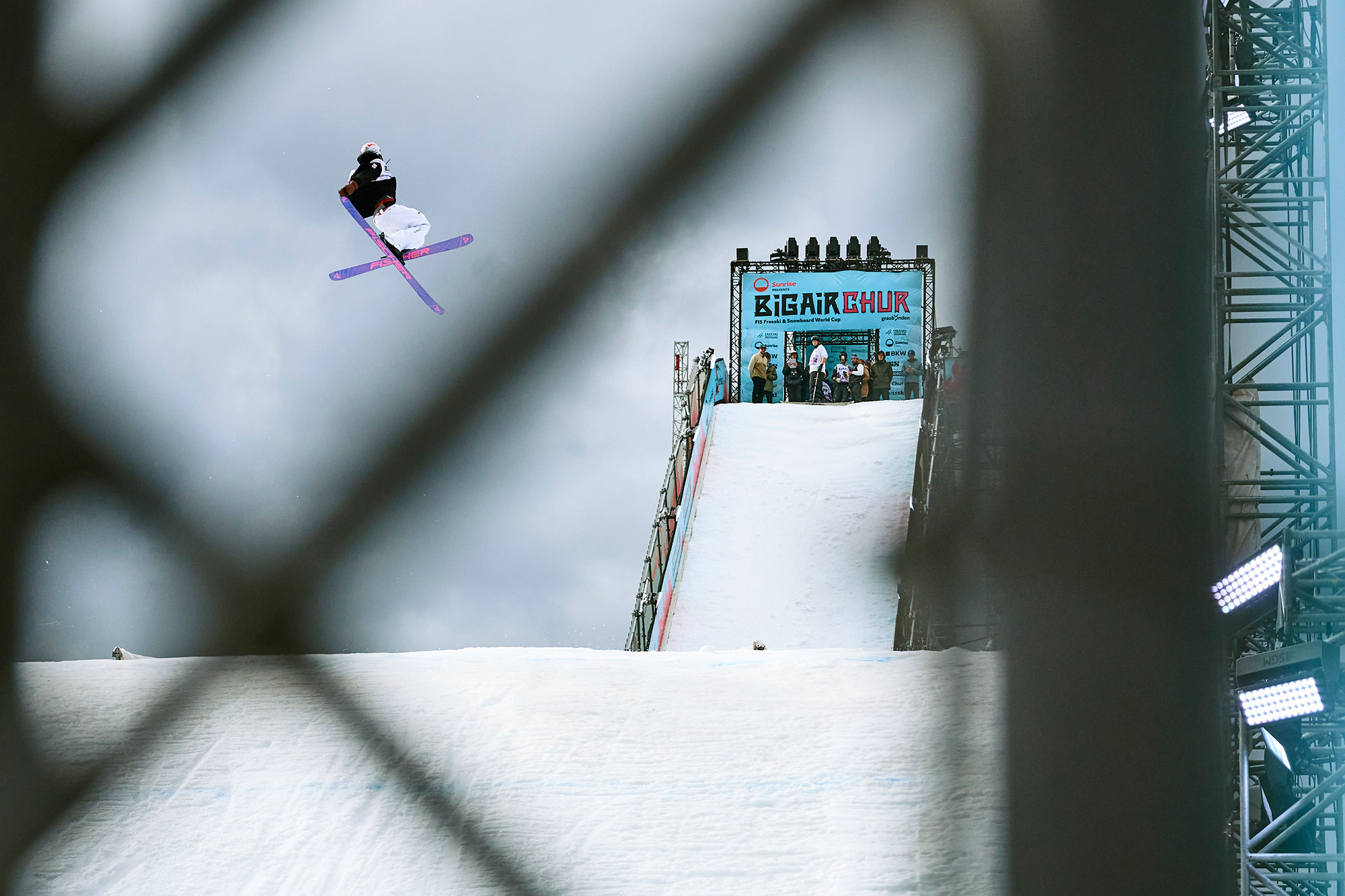
Luki Müllauer, a founding member of the 1800 club. Photo: Lämmerhirt
Women’s Qualifications: Double Corks and Grab Variations
In comparison to the men, the women’s qualifications weren’t quite as surprising. Big air veteran Tess Ledeux led the field with her flawless left double cork 1260 mute, a trick she seems to be able to land in her sleep, and also showed off a capped double 12 blunt that didn’t score as well due to the landing. Mathilde Gremaud and Kirsty Muir also landed dub 12s to advance, while Olivia Asselin demonstrated her impeccable style and poise in a left double cork 1080 safety.
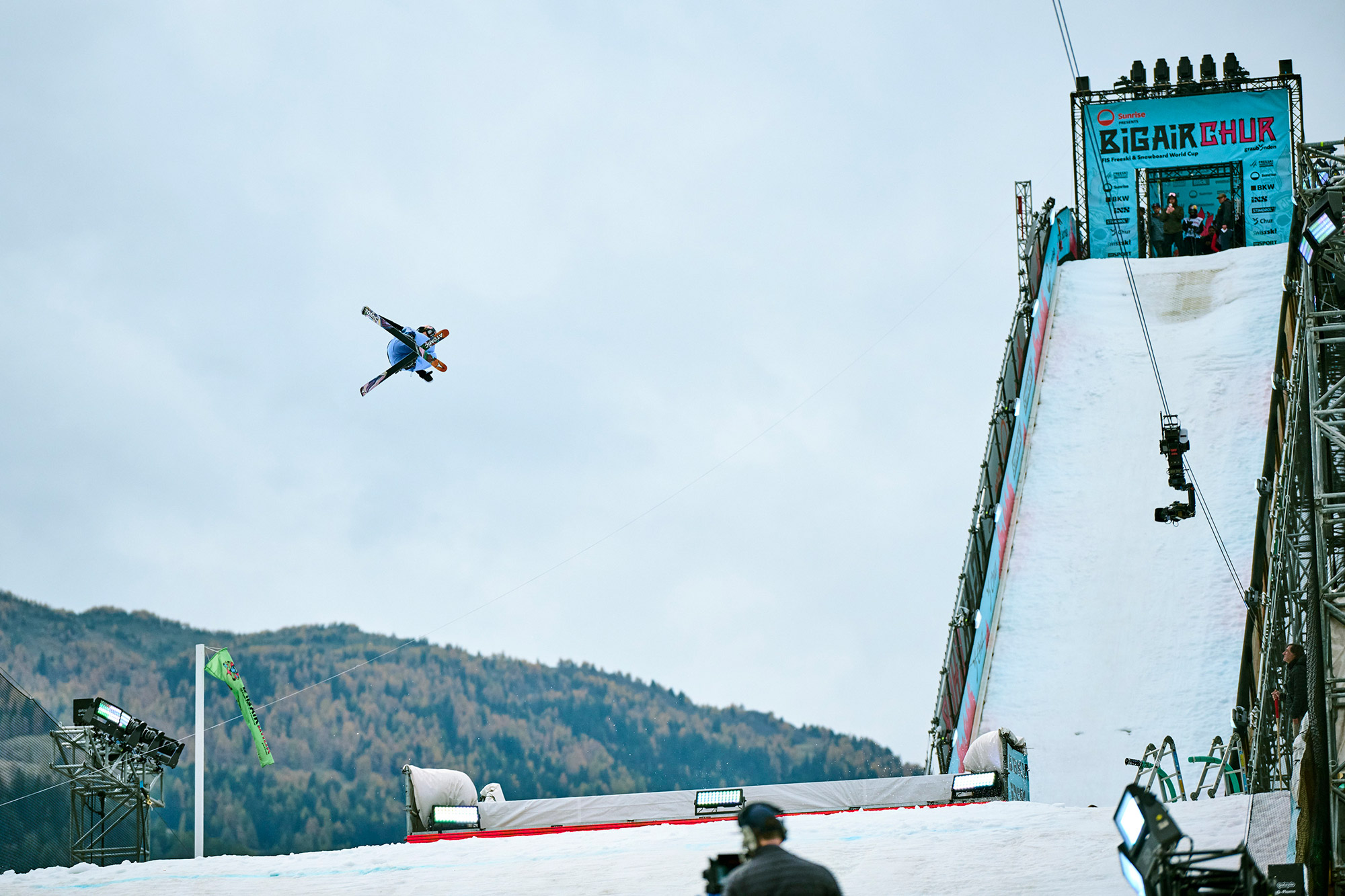
This capped dub 12 blunt by Tess Ledeux was one of the highlights of women´s qualifications. Photo: Stadler
In a breath of fresh air from the forward double corks, Megan Oldham mixed things up with a switch double 900 japan, while Sandra Eie added another left double 10 safety. The last two finals spots went to Kateryna Kotsar of Ukraine with a clean 1080 tail, and Lara Wolf from Austria with a switch misty 900 safety.
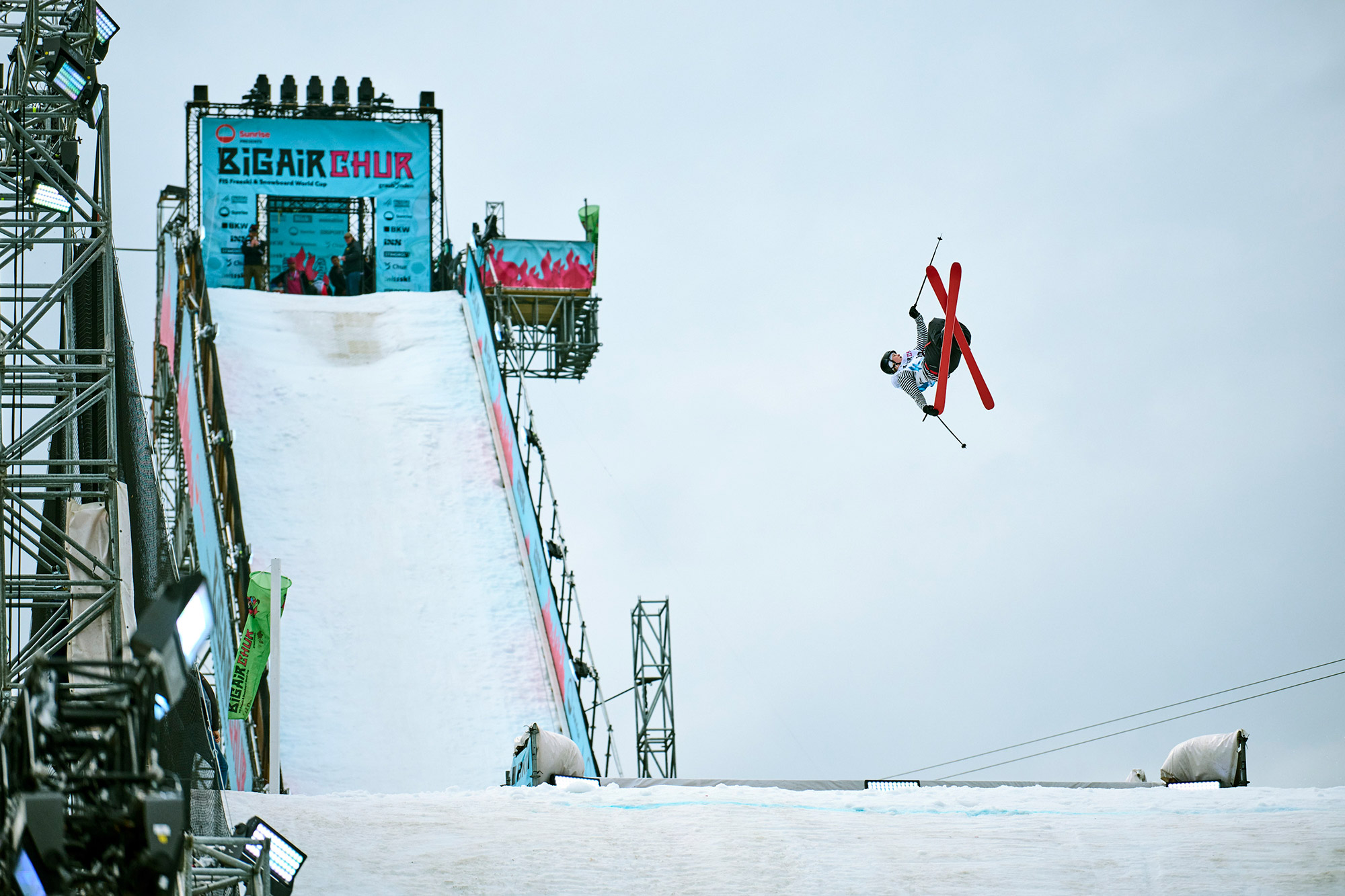
Despite its style, Anni Karava´s cork 7 blunt wasn´t enough to get her into the finals. Photo: Stadler
Women’s Finals: A Nail-biter finish
After an afternoon break, the 16 qualified riders were back in their ski boots for the night final under the lights. It was a long day for the competitors (some of whom had been skiing since eight in the morning) and tired legs were definitely a factor in the best-of-three-jumps finals.
The women’s final turned out to be a true nail-biter, with the lead changing three times in the final round. Tess Ledeux established a strong early lead with her dialed-in left double cork 12 mute, pursued by Olivia Asselin (left dub 10 safety) and Sandra Eie (right dub 10 japan). In the second round, Mathilde Gremaud added her name to the podium contenders with a polished left double cork 1260 safety.
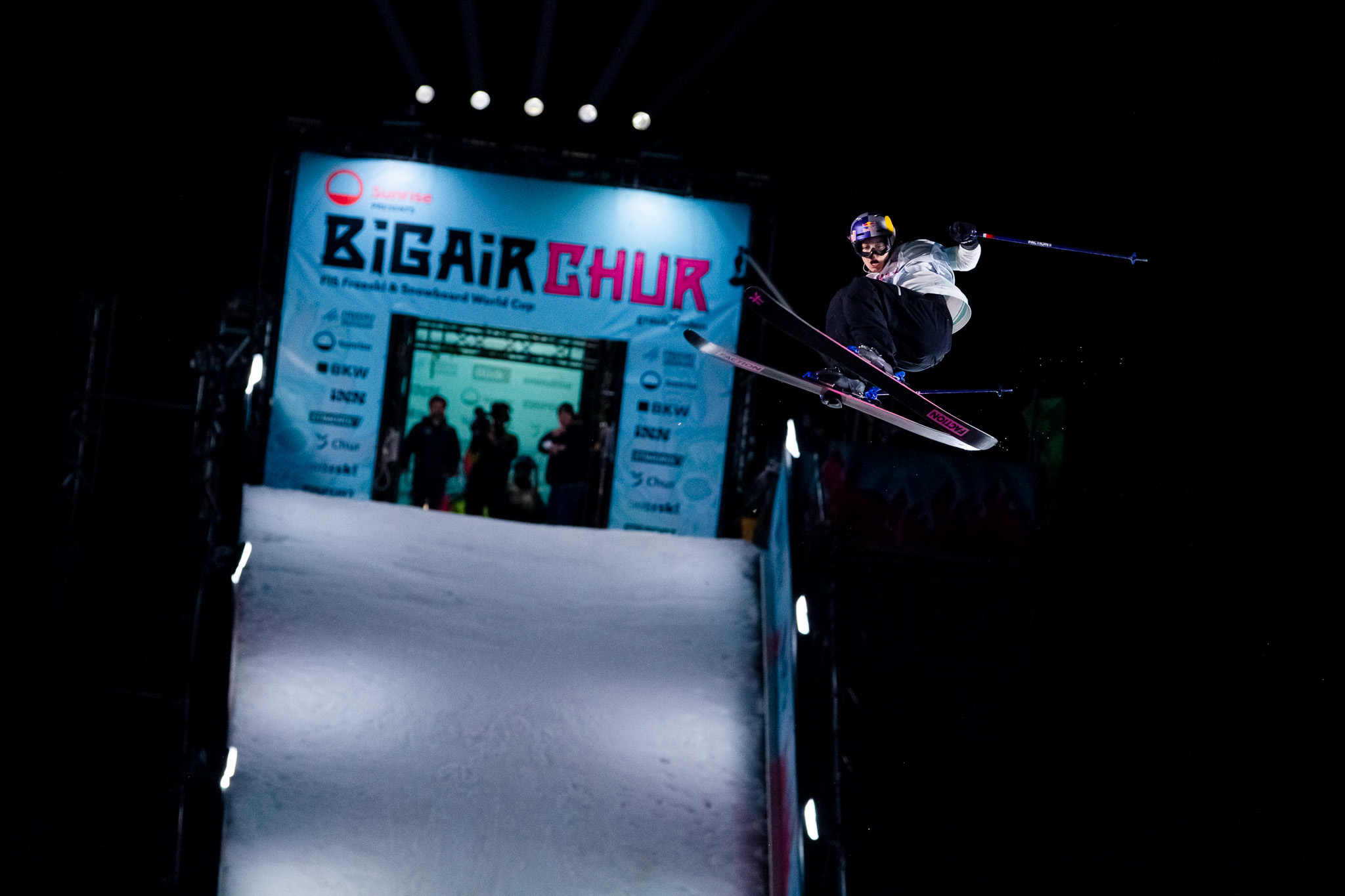
Mathilde Gremaud´s stomped double cork 12 put her into podium contention. Photo: Stone
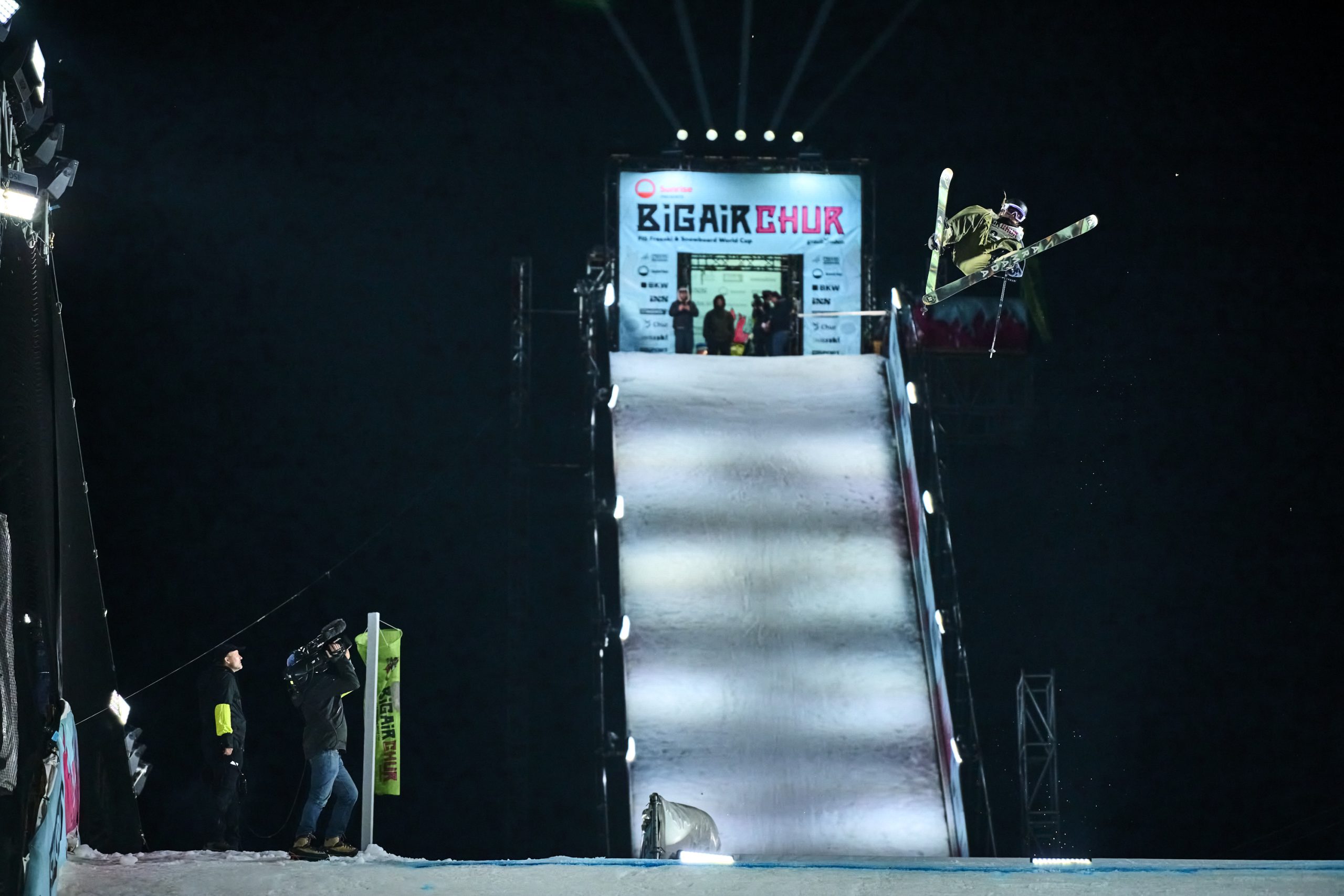
Olivia Asselin´s dub 10 was one of the cleanest in the women´s finals. Photo: Stadler
With most of the women lacking a clean second trick to bump up their scores in the best-2-of-3 format, it wasn’t until the third round when the sparks really started to fly. First, Mathilde Gremaud landed a switch double 1080 safety to vault from fifth place into first. Then Sandra Eie stomped a left double cork 10 safety, bumping Gremaud into second. And finally, it was none other than top qualifier Tess Ledeux, who exerted dominance with a perfect right double cork 1080 safety—a new trick in her already extensive repertoire—to retake the lead and claim the gold medal. It was the tenth World Cup victory for the still-young Frenchwoman.
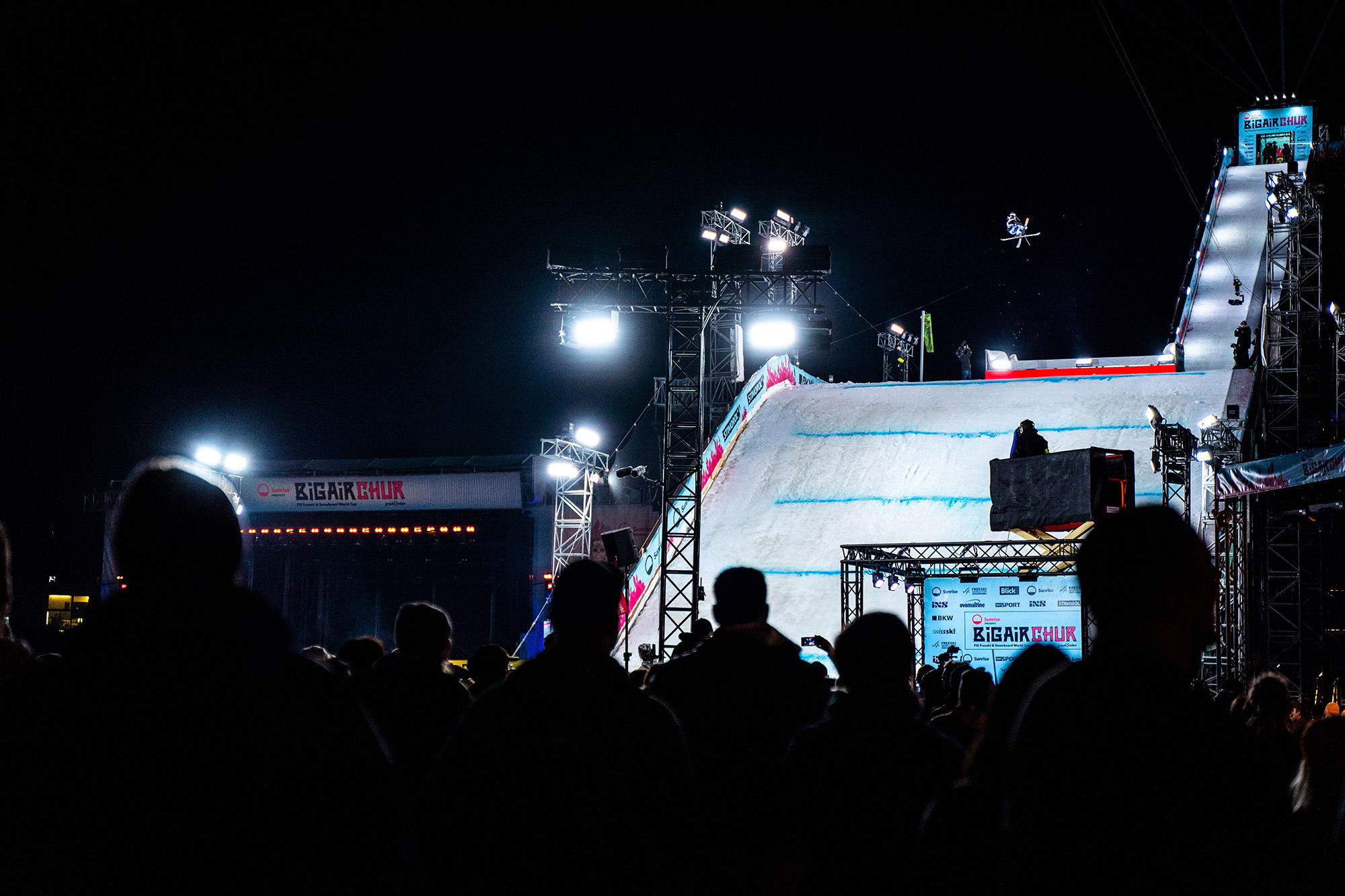
Her tried-and-true dub 12 combined with a new right dub 10 carried Tess Ledeux to yet another first-place finish. Photo: Noah Wallace
“It was a very long day,” said third-place finisher Sandra Eie. “The atmosphere here is so crazy. You want to take everything in, and then focus on your jump. I was so glad that I landed the right 10, because it was so scary and I didn’t want to do it again! I’m so stoked on my first podium.”
Second-place finisher Mathilde Gremaud stayed a long time in the finish corral, taking selfies and signing autographs. “I think it’s important because they are super stoked,” she said of her many fans in the crowd. “It’s fun for me to meet them and spend a bit of time with them, especially the young ones. It’s cool that they can meet us and have a chat with us."
Men’s Finals: Bu$y Maneuvers and Rookie Success
Three Rs led the pack after the men’s first jump: Hannes Rudigier (left double 16 double tail), Andri Ragettli (switch left double misty 1800 safety), and Birk Ruud (left double bio 1800 mute). Most of the rest of the field crashed on their first hits, with Jesper Tjäder, Leonardo Donaggio, Hugo Burvall and top qualifier Troy Podmilsak all going down.
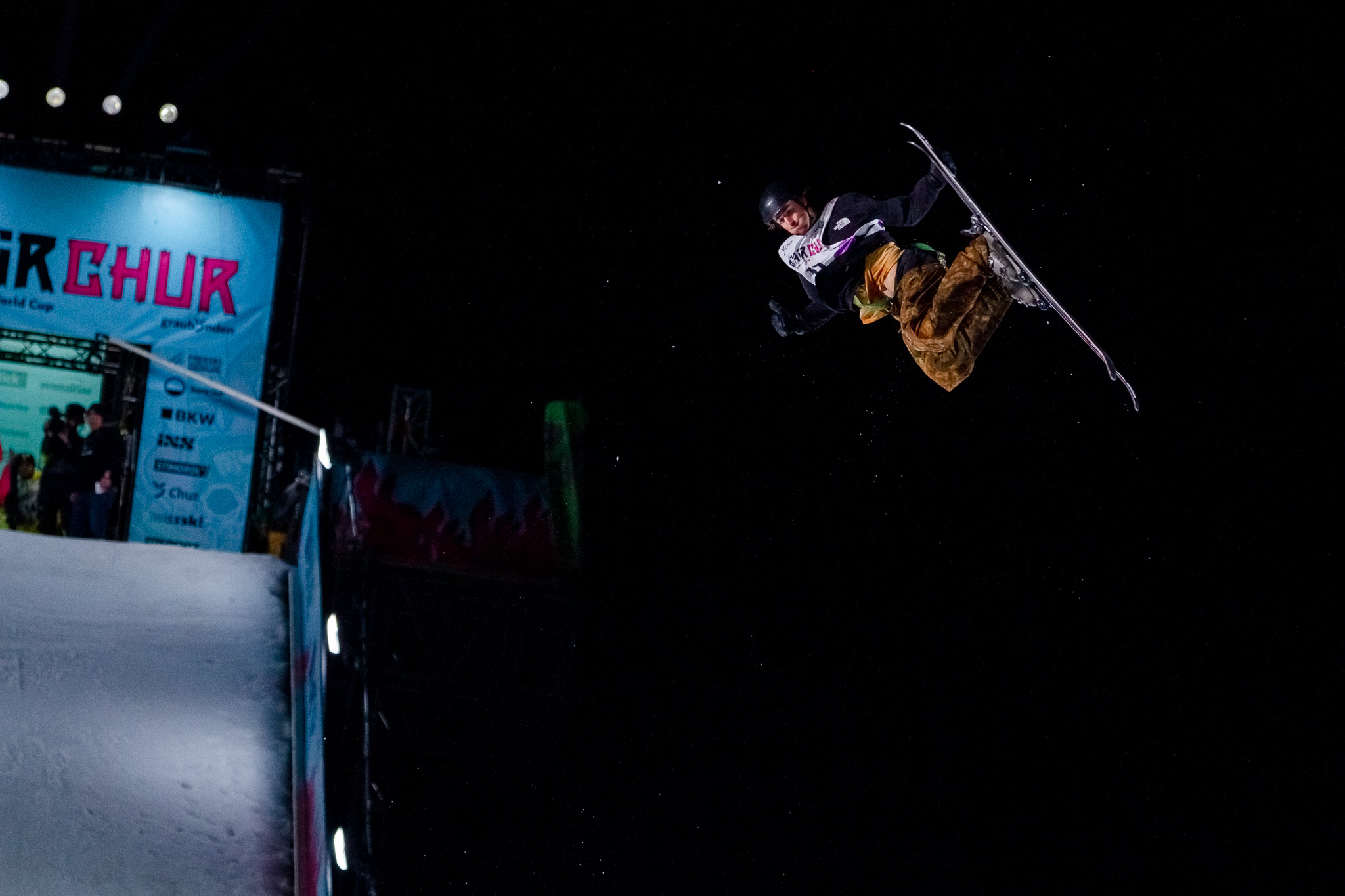
Noah Porter Maclennan´s double 1800 stale is a wonder to behold. Photo: Stone
Kicking off the second round, Rudigier improved on his already stellar showing for the evening, stomping a flawless right triple cork 1620 guitar to briefly move into first place. He was followed by Canadian up-and-comer Noah Porter Maclennan, who sent a left double cork 1800 stale deep into the landing to move into second. Top qualifier Podmilsak also entered the podium conversation, landing his monster left triple cork 1800 mute clean for a score of 94.75. It was Birk Ruud, however, who landed the most talked-about trick of the evening to extend his lead.
Ruud set a switch left rotation, grabbing mute cleanly through switch cork 7 before opening up and contorting his body so as to spin a switch cork 180 to the right out of the rotation. We saw a lot of bringback attempts in Chur, but Ruud’s was the most cleanly performed and the most unexpected. The judges rewarded him in kind with a monster score of 95.75 and a dominant lead.
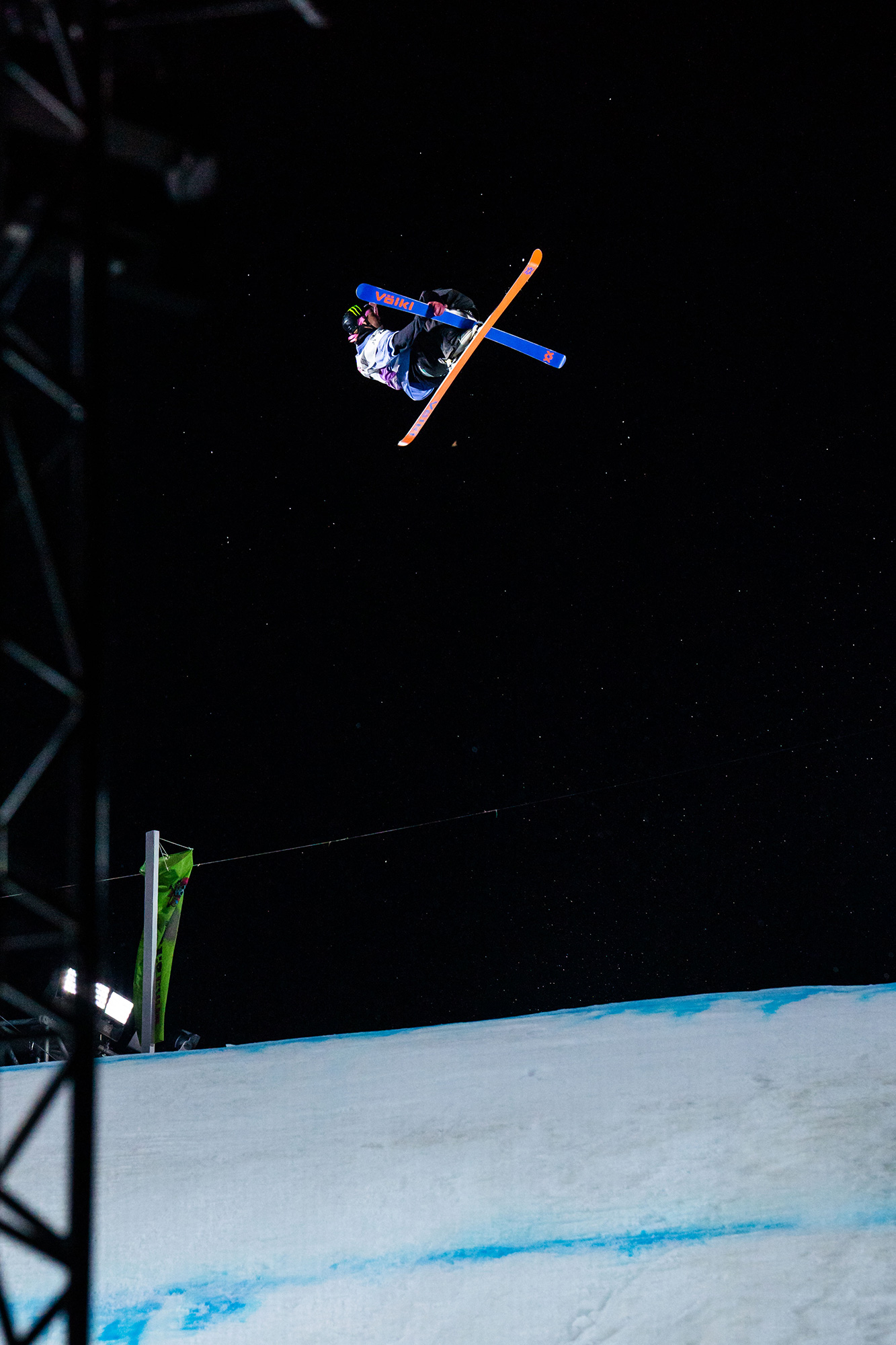
On a day that saw many bringback attempts, Birk Ruud´s impressed the judges the most. Photo: Noah Wallace
“It’s a funky switch dub 900," Ruud told me after the contest. "It’s a switch dub 12 set, and then I kind of bring my body back to stop the rotation into a switch cork 1, and that equals a switch dub 900.”
“I was having a hard time in practice, and to me, I felt like I had to go with the ‘spin to win,’” he added. “It just didn’t feel right and I decided to go with what felt right, and it was the switch dub 9. I’m happy I did it and I’m glad it paid off. I think it’s cool to try to go a little different direction, or at least try to do something new, and it’s great to be the first in competition to do that.”
In the third round, Jesper Tjäder, who’d crashed on his first two hits, decided to show off a bringback trick of his own with a switch left double 720 japan, rewinding the second flip into a rightside rotation, but with a bit of a squirrelly landing that didn’t find the hoped-for reception in the judges’ booth. Podmilsak, who needed a second trick to back up his huge triple 18, landed a switch right double misty 1620 mute, launching him into second place. He was promptly bumped into third by his good friend Porter Maclennan, who improved the score on his dub 1800 stale with a cleaner landing.
This left Andri Ragettli and Hannes Rudigier outside of the podium and looking in. Ragettli opted for a double cork 1620 double tail, hoping for a clean execution to help him regain the podium, but in this field full of 1800 rotations, it wasn’t enough. Rudigier went for broke with a double cork 1980 tail attempt, but couldn’t stomp it. That left Ruud to take a victory lap with a casual double backflip.
Besides Ruud’s antics, the highlight of the night was the performance of Troy Podmilsak and Noah Porter Maclennan, two young North American athletes with only a handful of World Cup starts between them.
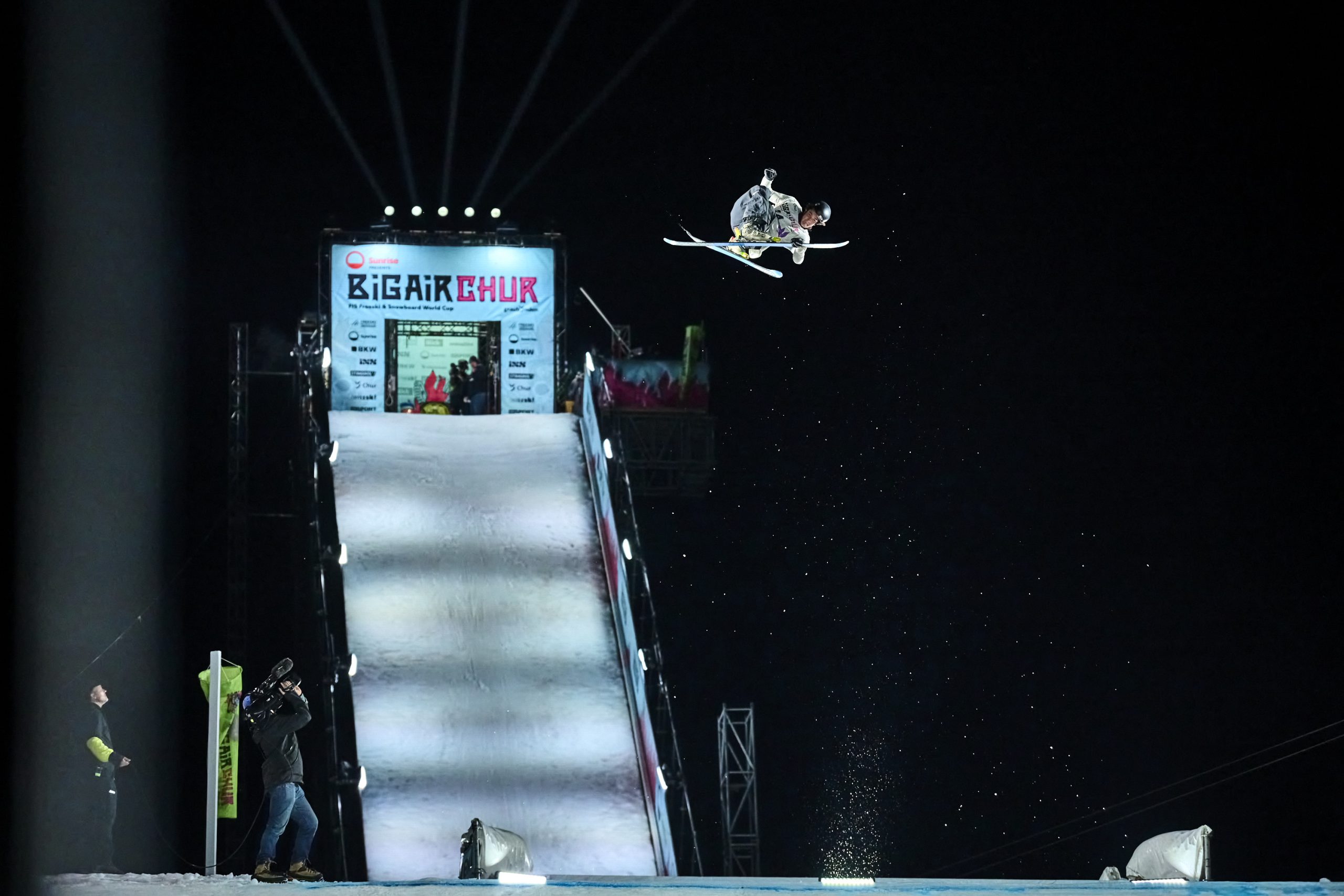
Troy Podmilsak´s huge triple 1800 was one of the evening´s highlight tricks. Photo: Stadler
“Seeing my boy Noah on the podium with me was dope,” said an elated Podmilsak after the contest. “We came onto the Nor-Am scene together, and to kind of graduate at the same time is really dope.”
I asked him about the unique vibe in Chur, with a huge crowd at the base of the jump. “It’s insane,” he answered. “I was tired, I had to wake up at five this morning, I’m sore, my body is hurting. But the crowd kept me going.”
Full Results | Big Air Chur 2022
Women's Finals

men's Finals
